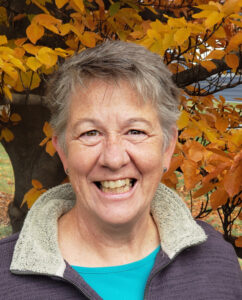The North American Long-Term Soil Productivity Experiment: Is it still relevant after 30 years?
Deborah Dumroese, Research Soil Scientist – U.S. FOREST SERVICE
Debbie is a Senior Research Soil Scientist with the Rocky Mountain Research Station and is located in Moscow, ID. Her work is centered around providing land managers with data that supports minimizing soil impacts from harvest operations and slash pile burning. She installed one of the first 4 North American Long-Term Soil Productivity sites and continues core measurements and upkeep on 3 sites scattered in the Pacific Northwest, USA. She also does work on creating and applying biochar across a wide range of soils and is involved with determining how land management affects surface and belowground decomposition rates.
Abstract: There have been many long-term field studies established to evaluate changes in agricultural soils, but there are few that evaluate changes in forest ecosystem function. The North American Long-Term Soil Productivity (LTSP) experimental study sites were established after the passing of the National Forest Management Act of 1976, which legally bound public forest land management to minimize impairment of site productivity. The passing of this Act was a national mandate to ensure sustained forest productivity. The beginning of LTSP was an agreement on a core set of treatments applied across a spectrum of forests and physiographic regions and it would address both basic and applied science issues of forest management and sustained productivity. This work was established as a partnership between researchers and land managers to describe both the initial impacts and the trajectory of treatment level responses. It required coordination at a grand scale to accommodate replication and provide for innovative application of site treatments. To date, our efforts have resulted in numerous publications and presentations that inform land management decisions. For example, it has resulted in a standardized forest soil monitoring protocol for public lands in the US, surface organic matter retention guidance, and whole-tree harvesting restrictions in Ontario. Is this study still relevant after 3+ decades? Yes. I believe that it is as relevant today as it was 30 years ago and this presentation will highlight new findings and provide suggestions on how these study sites can be leveraged in the future.

